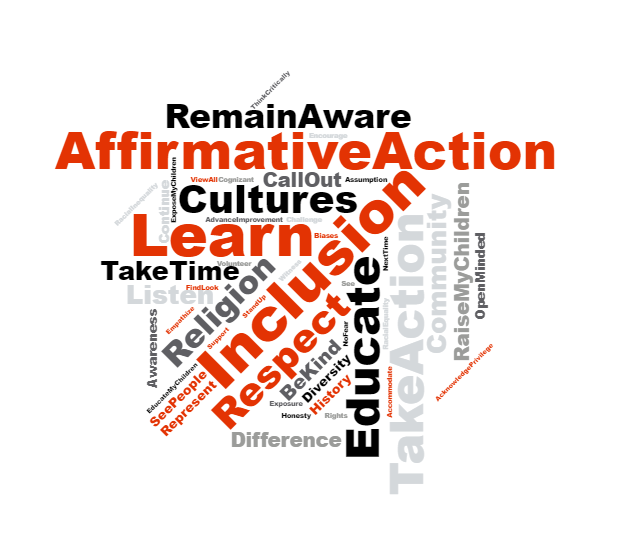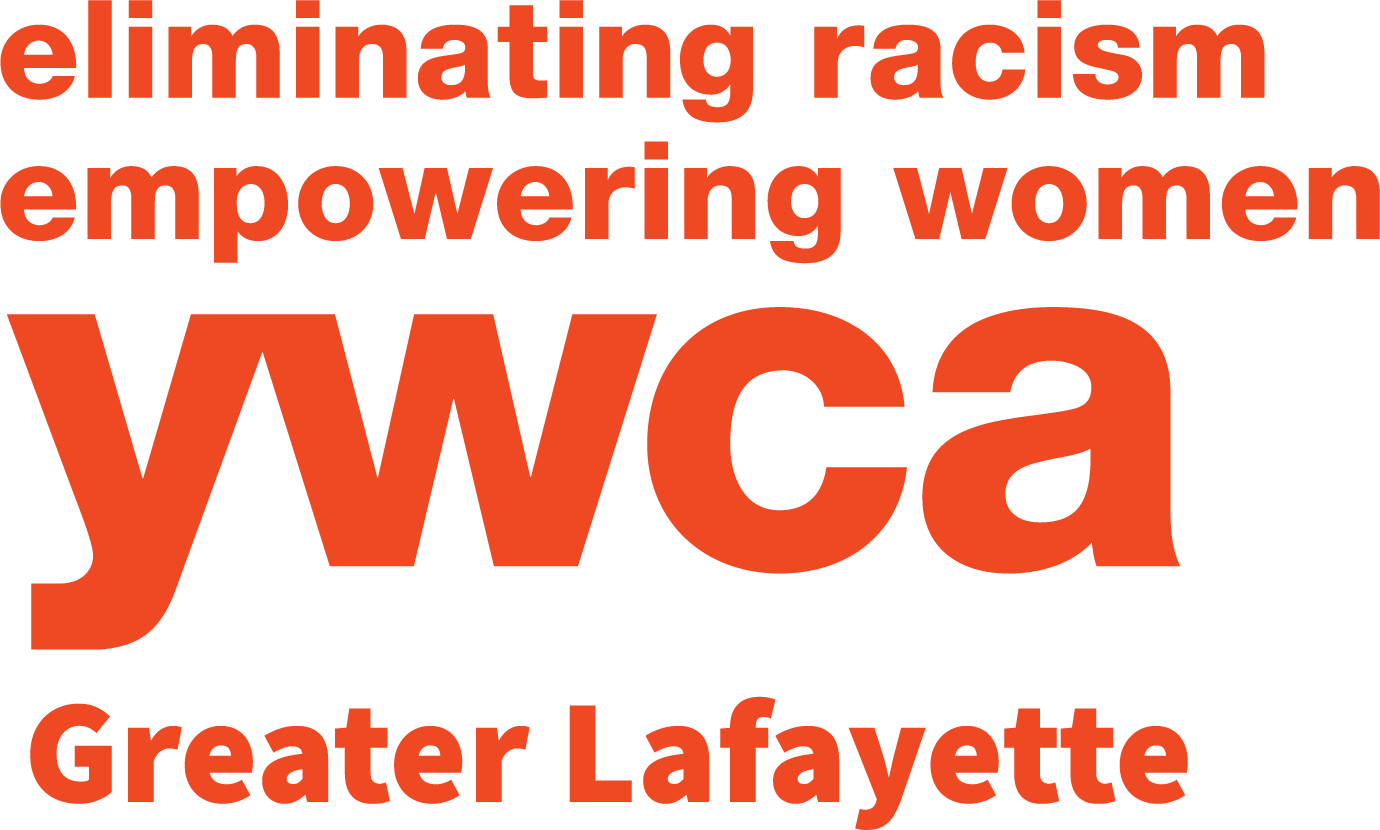Stand Against Racism 2019 Recap
Written By: Leah Giorgini | Senior Director
Domestic Violence Intervention & Prevention Program
YWCA USA’s annual national campaign Stand Against Racism 2020 is nearly upon us! YWCA Greater Lafayette has been communicating with businesses and community groups throughout Lafayette and West Lafayette as we determine what the 2020 Stand Against Racism will look like, especially as we shift gears amidst the COVID-19 pandemic. Before we release plans and resources for this year, we want to share the results of our 2019 poster pledge campaign to see where our community was a year ago, and highlight what work still needs to be done.In April 2019 YWCA Greater Lafayette asked our community to join us in making individual and collective pledges towards racial equity. Pledge boards were distributed to local businesses, community groups, social service agencies, and displayed at public events in order to generate reflection, discussion, and action on the topics of race and racism. The response we received was inspiring, with pledges coming from all corners of our community from police departments to local schools. The following are the themes that emerged.
Equality vs Equity
- “The only race that matters is the human race”
- “I will treat everyone the same, no matter race, creed or religious views or orientation”
- “All lives matter”
- “Respect each other’s cultural norms”
- “I will raise my children not to be colorblind”
Martin Luther King Jr famously stated in his 1963 “I Have a Dream” speech that “all men are created equal”. Many comments received honored this equality message through centering the commonalities that transcend racial divides, and asserting that everyone should be recipients of the same rights.Conversely, others focused on the value of understanding and celebrating difference. These pledges spoke to the importance of understanding other cultures and acknowledgement that focusing on similarity alone is an erasure that can undermine the experiences of people of color and therefore sustains systemic inequity.The tension present between these two approaches was clear from our data, with contrasting references to colorblindness being positive or negative, and ‘black lives matter’ with ‘all lives matter’, a common counter-slogan that some may view as offensive. So, how as a community do we close this divide? Some experts, such as Keeanga-Yamahtta Taylor, an assistant professor of African-American Studies at Princeton university, have suggested that uncovering such disparities in anti-racism work provides opportunity for discussion and building understanding.
Education
- I will represent multiple cultures in the classroom environment
- Volunteering more within the community in diverse groups
- Interact with others to form a proactive community
- Expose my children to other cultures
- I will acknowledge my privilege and actively listen to those who have different background from myself
The word ‘learn’ or ‘learning’ was one of the most commonly featured in pledges. Participants commonly pledged to educate those around them, including friends and family such as children or grandchildren. There was also significant commitment to educate oneself through intentional exposure to different groups and viewpoints.This theme highlights the power we have to influence others close to us with our own knowledge and values. Studies show that children pick up on even the most subtle cues of their parents’ racial prejudices, leading to inter-generational bias and racism. We, therefore, have an immense responsibility to project anti-racist values to our children and the younger generations, which goes beyond merely talk, but also in shaping their social environment.Acknowledging privilege and seeking learning opportunities lack of cultural competencies are the beginnings of acting with cultural humility, an effective form of addressing bias. Cultural humility involves three aspects: a lifelong commitment to self-evaluation and self-critique; a desire to fix power imbalances; and develop partnerships with people and groups who advocate for others.
Action
- I will call people out when I hear disparaging comments about minorities
- I will not participate or engage in talk that promotes racism
- Find and look for ways to highlight the continued inequality
Many people who responded to our poster campaign pledged to speak up and out about racism when they were confronted with it. Most of us have had moments in the past in which we have heard racist comments or jokes and not acted, be it out of wanting to keep the peace, fear, or simply being unsure what to say. The Southern Poverty Law Center website give six steps to speaking out against everyday bigotry, these are: be ready, identify the behavior, appeal to principles, set limits, find or be an ally, and be vigilant. Calling out racism contributes to shaping communities that overtly reject bigotry and embrace tolerance. However, action can and should also take place to advocate for larger scale societal change to address the systems that uphold racial inequity.We hope you have found these results as interesting as we did and are enthused to join us for the 2020 Stand Against Racism campaign. Stay tuned for more details and resources, to be released very soon.Leah GiorginiSenior DirectorYWCA Greater LafayetteWith thanks to Lucy Dillman and Allison Frazier for their data analysis skills.
